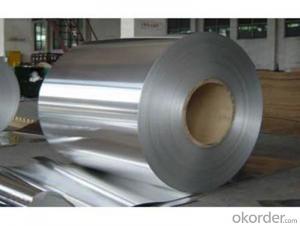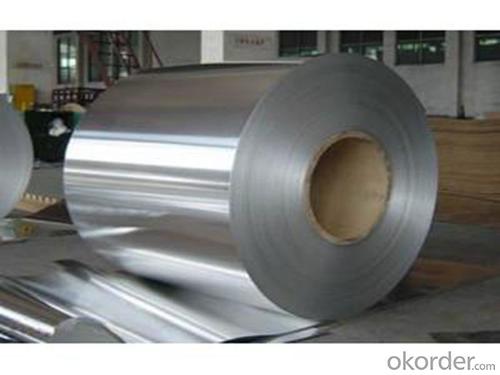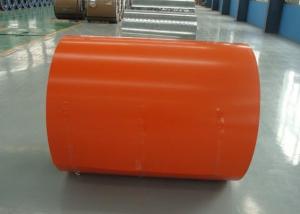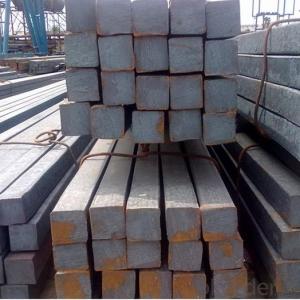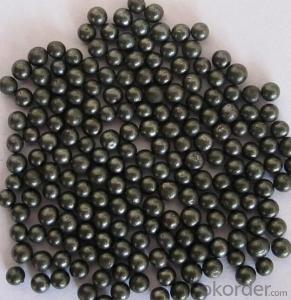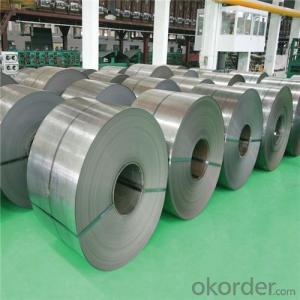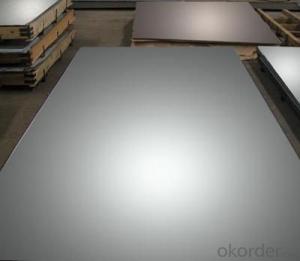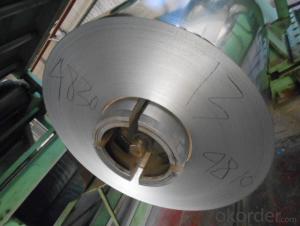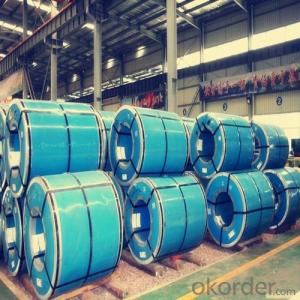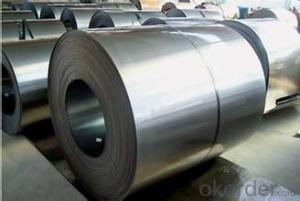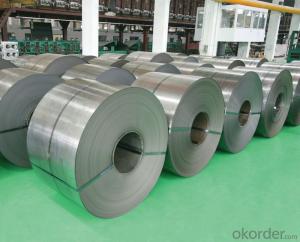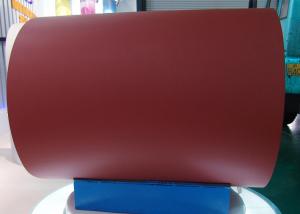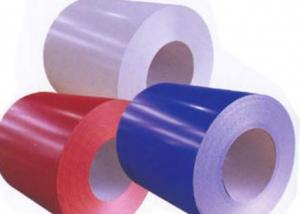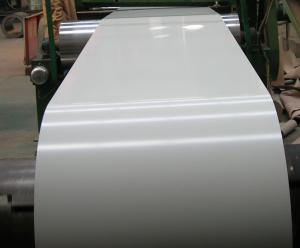Non-oriented silicon steel coils with good quality and competitive price
- Loading Port:
- Tianjin
- Payment Terms:
- TT OR LC
- Min Order Qty:
- 100 m.t.
- Supply Capability:
- 100000 m.t./month
OKorder Service Pledge
OKorder Financial Service
You Might Also Like
1. Specifications:
. Thickness:0.35-0.5mm
.Width:1200-1250mm
.50W600, 50W800, 50W1300 or others
2. Description
Products Name | Cold Rolled Non-Oriented Silicon Steel coil |
Material | 50W600, 50W800, 50W1300 |
Standard | GB/T 2521-2008 or as customized |
Size | Width:1200mm~1250mm |
Thickness:0.35-0.5mm | |
Coil weight | 5~8tons |
Coil diameter | 508mm |
Technique | cold rolled |
Surface Treatment | T4 coating |
Workflow | Hot rolled coilàpicklingàrollingàcoatingàdecarburizing annealingàstriping |
Package | Standard seaworthy export packing, or as required |
Loading | Per container can be loaded 25 tons |
Port of shipment | China port |
Payment | T/T or 100% Irrevocable L/C at sight, 30% deposit need to prepaid in advanced |
Delivery time | 10days after receiving your deposit of T/Tor L/C. |
Application | power motor, household appliances, transformers, rectifiers, voltage regulator, electric welding machine, transformers and other electrical and mechanical and small home appliance industry. |
3. Application
power motor, household appliances, transformers, rectifiers, voltage regulator, electric welding machine, transformers and other electrical and mechanical and small home appliance industry.
4. Pictures
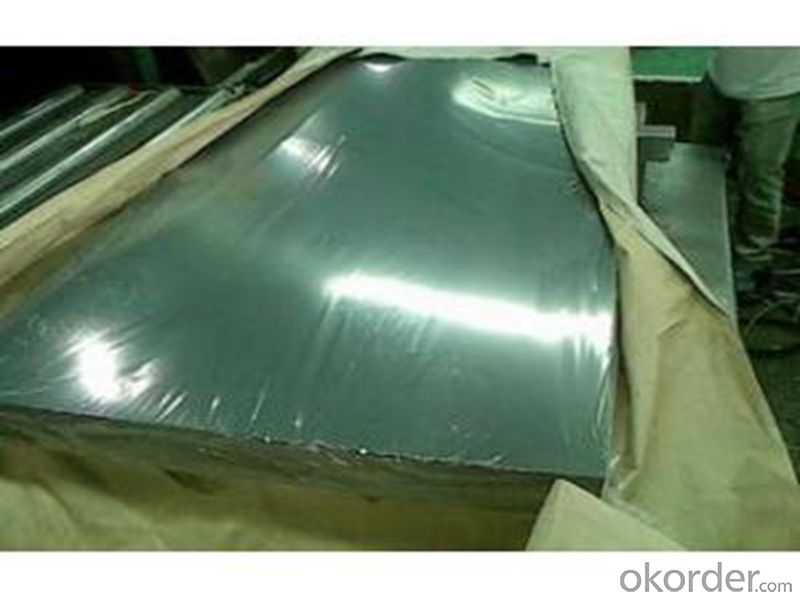
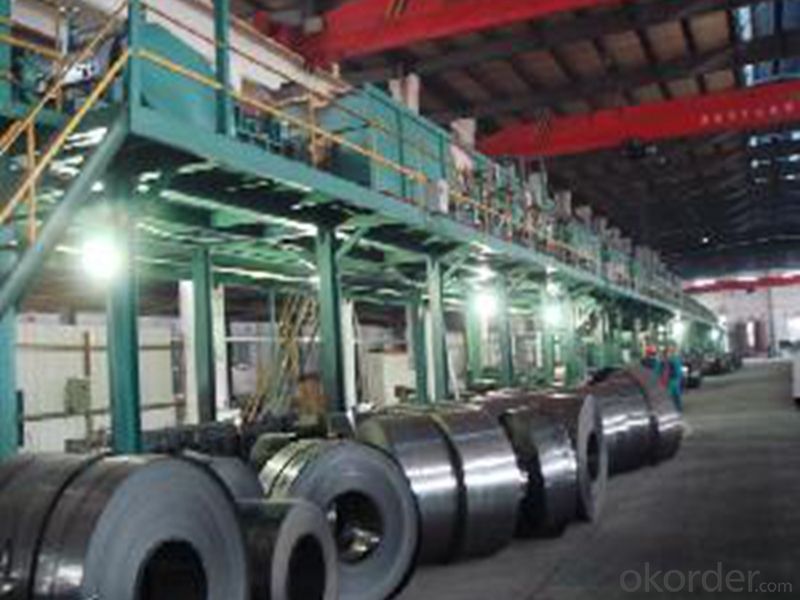
5.FAQ
We have organized several common questions for our clients,may help you sincerely:
①How about your company?
A world class manufacturer & supplier of castings forging in carbon steel and alloy steel,is one of the large-scale professional investment casting production bases in China,consisting of both casting foundry forging and machining factory. Annually more than 8000 tons Precision casting and forging parts are exported to markets in Europe,America and Japan. OEM casting and forging service available according to customer’s requirement.
②How to guarantee the quality of the products?
We have established the international advanced quality management system,every link from raw material to final product we have strict quality test;
- Q: What are the common types of steel products used in the marine industry?
- The common types of steel products used in the marine industry include structural steel, marine grade stainless steel, and steel plates for shipbuilding.
- Q: What are the different types of steel forgings and castings?
- There are various types of steel forgings and castings, including open-die forgings, closed-die forgings, and rolled-ring forgings. In terms of castings, common types include sand castings, investment castings, and die castings. Each type has its own unique characteristics and applications in different industries.
- Q: What are the different types of surface finishes for steel products?
- There are several types of surface finishes for steel products, including hot-dip galvanizing, electroplating, powder coating, painting, and passivation.
- Q: What are the different types of steel beams?
- There are several different types of steel beams, including I-beams, H-beams, W-beams, and C-beams. Each type has a unique shape and serves different purposes in construction and engineering projects.
- Q: What are the common uses of steel in the defense industry?
- Steel is commonly used in the defense industry for a variety of applications such as manufacturing armored vehicles, naval ships, aircraft carriers, submarines, and tanks. It is also utilized for constructing military infrastructure, including bunkers, fortifications, and military base facilities. Furthermore, steel is essential for producing weapons, ammunition, and equipment for the armed forces. Its high strength, durability, and resistance to impact make it an ideal material for ensuring the safety and effectiveness of defense operations.
- Q: What are the different types of steel coatings and finishes available for steel products?
- There are several types of steel coatings and finishes available for steel products, including galvanized, stainless, painted, and powder-coated. Galvanized coatings involve applying a layer of zinc to the steel surface to protect it from corrosion. Stainless steel coatings are made with a chromium-nickel alloy, providing excellent resistance to rust and staining. Painted finishes involve applying a layer of paint on the steel surface for both aesthetic appeal and protection against corrosion. Lastly, powder-coated finishes involve applying a dry powder onto the steel surface, which is then cured through heat to create a durable and decorative coating.
- Q: What are the different types of steel profiles and their applications?
- There are several types of steel profiles used in various applications. Some common types include structural steel profiles, such as I-beams and H-beams, which are used in construction for load-bearing purposes. Other types include angle profiles, which are often used in framing and bracing applications, and flat profiles, which are utilized in the manufacturing of machinery and appliances. Additionally, steel tubing profiles are commonly used in the construction of pipelines and in the automotive industry. Each type of steel profile has its own specific application and is chosen based on the required strength, durability, and structural characteristics needed for the intended use.
- Q: How are steel plates used in the fabrication of storage tanks?
- Steel plates are used in the fabrication of storage tanks as they provide a strong and durable material that can withstand the pressure and weight of the stored contents. The plates are cut and welded together to form the tank's structure, ensuring a secure and leak-proof container for storing various substances such as liquids or gases.
- Q: What are the different types of heat treatments for steel?
- There are several different types of heat treatments for steel, including annealing, normalizing, quenching, tempering, and case hardening. Annealing involves heating the steel to a specific temperature and then slowly cooling it to relieve internal stresses and improve its ductility. Normalizing is similar to annealing, but the steel is cooled in still air instead of a controlled environment. Quenching involves rapidly cooling the steel to increase its hardness, while tempering is a subsequent heat treatment that reduces the brittleness caused by quenching. Case hardening is a process where only the outer surface of the steel is hardened, making it more wear-resistant while maintaining a tough core.
- Q: What are the different types of steel bars and their applications?
- There are several different types of steel bars, each with its own unique properties and applications. Some common types include round bars, square bars, flat bars, and hexagonal bars. Round bars are often used in construction, engineering, and manufacturing industries for applications such as shafts, fasteners, and machinery components. Square bars are commonly used in construction, fabrication, and manufacturing projects, particularly for making structural supports and frames. Flat bars are versatile and widely used in applications such as braces, brackets, and trim work. Hexagonal bars are often utilized in machinery and equipment manufacturing. Overall, the specific type of steel bar chosen depends on the intended application and the desired characteristics necessary for that particular use.
Send your message to us
Non-oriented silicon steel coils with good quality and competitive price
- Loading Port:
- Tianjin
- Payment Terms:
- TT OR LC
- Min Order Qty:
- 100 m.t.
- Supply Capability:
- 100000 m.t./month
OKorder Service Pledge
OKorder Financial Service
Similar products
Hot products
Hot Searches
Related keywords
